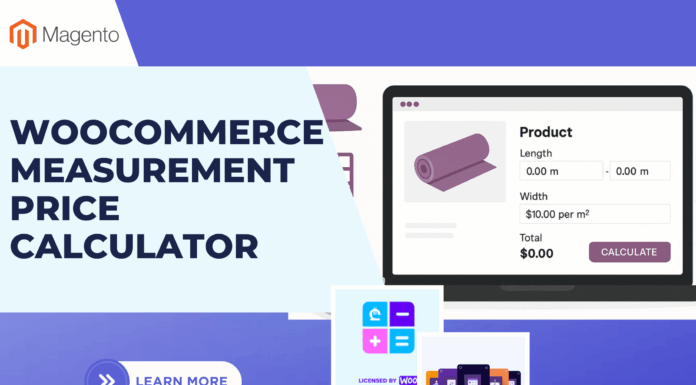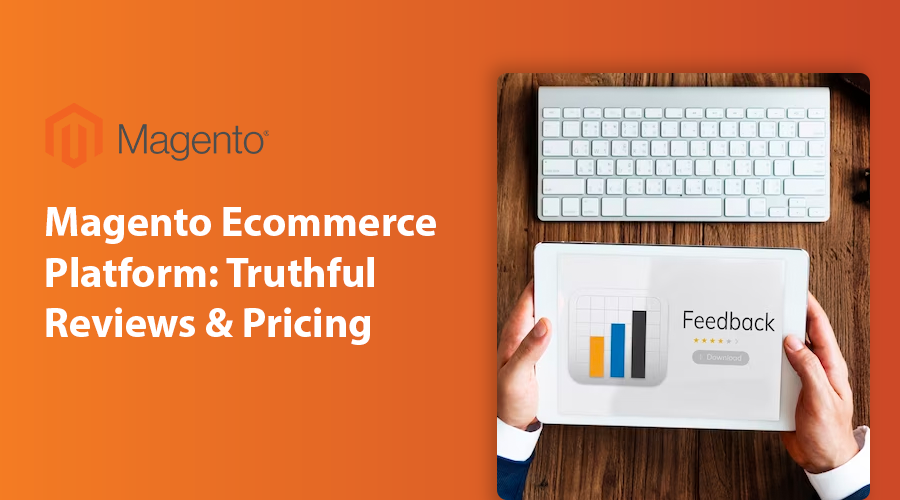
Magento is a popular eCommerce platform that provides businesses with a powerful and flexible solution for online sales. With a wide range of features and customization options, Magento is a popular choice for businesses of all sizes.
In this article, we’ll provide an overview of the Magento Ecommerce Platform, including its key features and pricing options, as well as our expert evaluation of its reliability and user reviews. Whether you’re just starting out or looking to upgrade your existing eCommerce platform, this article will provide you with the information you need to make an informed decision about whether Magento is right for your business.
Table of Contents
I. Magento Ecommerce Platform Reviews
Magento comes in two main versions: Magento Open Source and Magento Commerce:
- Magento Open Source is a free, open-source platform that provides basic eCommerce functionality for small to medium-sized businesses. It offers a range of customization options through modules and themes but requires technical knowledge for setup and maintenance.
- Magento Commerce is a paid, premium version of the platform that provides advanced eCommerce capabilities, including B2B features, personalized shopping experiences, and increased scalability. It includes 24/7 technical support and dedicated account management.
Both versions offer a wide range of features, including product management, order management, and customer management, but Magento Commerce provides additional enterprise-level capabilities. The choice between the two versions depends on the specific needs and resources of your business.
1.1 Pros and cons
Like other eCommerce platforms, Magento has advantages and disadvantages. Scalability and a large feature set are the two biggest benefits this software offers. However, it also necessitates that consumers have the necessary technical skills and spend more time and money.
Here is the list of the greatest pros and cons when it comes to Magento eCommerce platforms:
1.1.1 Pros of Magento Ecommerce Platform
- Flexibility: Magento offers a high degree of customization and integration with other systems, making it a versatile platform for businesses of all sizes and industries.
- Scalability: Magento is designed to scale with businesses as they grow, making it a suitable choice for small businesses and large enterprises alike.
- Large Community: Magento has a large and active community of developers and users, providing a wealth of resources and support.
- Extensive Functionality: Magento offers a wide range of built-in features, including product management, order management, and customer management, as well as the ability to add additional functionality through modules and extensions.
1.1.2 Cons of Magento Ecommerce Platform
- Steep Learning Curve: Magento can be complex and require a significant investment of time and resources to fully understand and utilize all its features.
- High Maintenance Costs: Magento can be resource-intensive and require ongoing technical support and maintenance, which can be expensive for small businesses.
- Limited Hosting Options: Magento is designed to run on a dedicated server, which can limit hosting options and increase costs for businesses.
- Performance Issues: Magento can be slower than other eCommerce platforms, which can negatively impact user experience and conversion rates.
Overall, Magento can be a powerful and flexible eCommerce platform, but it requires significant technical expertise and resources to leverage its capabilities fully, you can consider outsourcing Magento web development with the most trustworthy Magento company. However, businesses should carefully think about their specific needs and resources before choosing Magento as their eCommerce platform.
1.2 Features of Magento
Magento offers a wide range of features for eCommerce businesses, including:
1.2.1 Product Management
Product Management in Magento is a comprehensive set of tools for managing and organizing products in an eCommerce store. Some key features of Magento’s product management include:
- Product Information: Magento allows businesses to add detailed product information, including descriptions, images, specifications, and more.
- Categories and Attributes: Magento provides tools for organizing products into categories and subcategories, as well as adding custom attributes, such as size, color, or material.
- Pricing and Stock Management: Magento makes it easy to set up and manage pricing and stock levels for products, including the ability to offer special prices, promotions, and discounts.
- Product Variations: Magento supports the creation of product variations, such as different sizes or colors, allowing businesses to manage multiple product options in a single product listing.
- Product Reviews and Ratings: Magento provides features for customers to leave product reviews and ratings, which can help businesses understand customer satisfaction and make informed decisions about product offerings.
- Product Import and Export: Magento makes it easy to import and export product information, which can be useful for managing large product catalogs and making updates to products.
1.2.2 Marketing and Promotions
Marketing and Promotions in Magento is a comprehensive set of tools for businesses to effectively market their products and drive sales. Some key features of Magento’s marketing and promotions include:
- Email Campaigns: Magento provides tools for creating and managing email campaigns, including the ability to segment customers, create custom templates, and track results.
- Coupon Codes: Magento makes it easy to set up and manage coupon codes, including the ability to set conditions, such as minimum order amounts or product restrictions, and track redemption rates.
- Upsell/Cross-sell Promotions: Magento provides features for upselling and cross-selling products, including the ability to recommend related or complementary products based on customer behavior and purchase history.
- Product Bundles and Grouped Products: Magento supports the creation of product bundles and grouped products, making it easier for businesses to offer multi-product packages and encourage customers to purchase multiple items.
- Landing Pages: Magento provides the ability to create custom landing pages for specific marketing campaigns, including the ability to add custom content, images, and products.
- SEO Optimization: Magento includes built-in SEO optimization features, including the ability to add custom meta tags, create search engine-friendly URLs, and more, to improve search engine visibility and drive traffic to the website.
- Social Media Integration: Magento integrates with social media platforms, such as Facebook and Twitter, making it easier for businesses to share products, promotions, and other content with a wider audience.
1.2.3 Reporting and Analytics
Reporting and Analytics in Magento is a set of tools for businesses to track and analyze performance data, including sales, customer behavior, and website traffic. Some key features of Magento’s reporting and analytics include:
- Sales Reports: Magento provides detailed sales reports, including information on revenue, sales by product, and customer demographics, to help businesses understand their financial performance.
- Customer Reports: Magento provides customer reports, including information on customer behavior, such as purchase history, average order value, and lifetime value, to help businesses understand customer behavior and make informed decisions.
- Website Traffic Reports: Magento provides website traffic reports, including information on website visitors, pageviews, bounce rates, and more, to help businesses understand the effectiveness of their marketing and improve website performance.
- Custom Reports: Magento supports the creation of custom reports, allowing businesses to track data that is specific to their operations and goals.
- Integration with Google Analytics: Magento integrates with Google Analytics, providing businesses with access to additional data and insights, including information on website traffic, conversion rates, and more.
- Dashboards and Widgets: Magento provides interactive dashboards and widgets, allowing businesses to quickly view key performance indicators and analyze data in real time.
1.2.4 Mobile Optimization
Mobile optimization in Magento refers to the process of optimizing an eCommerce website for mobile devices, such as smartphones and tablets. Some key features of Magento’s mobile optimization include:
- Responsive Design: Magento’s platform is built on a responsive design framework, which automatically adjusts the layout of the website to fit the screen size of the device being used. This ensures that the website is optimized for mobile devices and provides an optimal viewing experience for customers.
- Mobile-friendly Themes: Magento provides a range of mobile-friendly themes, which are designed to provide a seamless mobile shopping experience for customers.
- Mobile Checkout: Magento’s mobile checkout process is optimized for mobile devices, making it quick and easy for customers to complete purchases on their mobile devices.
- Mobile App Support: Magento provides support for native mobile apps, allowing businesses to create custom mobile apps for their eCommerce stores.
- Mobile-specific Features: Magento provides mobile-specific features, such as the ability to save items to a wishlist, view order history, and receive push notifications, to improve the mobile shopping experience for customers.
1.2.5 Integrations
Integrations in Magento refer to the ability of the platform to connect with other software systems, such as payment gateways, shipping carriers, and more. Some key features of Magento’s integrations include:
- Payment Gateways: Magento integrates with a wide range of payment gateways, including PayPal, Stripe, Authorize.net, and more, to provide businesses with a secure and flexible payment processing solution.
- Shipping Carriers: Magento integrates with shipping carriers, such as FedEx, UPS, and USPS, to provide businesses with real-time shipping quotes, shipping label creation, and shipping tracking capabilities.
- Tax Calculators: Magento integrates with tax calculators, such as Avalara and TaxJar, to provide businesses with accurate sales tax calculations based on local tax rates and rules.
- Inventory Management Systems: Magento integrates with inventory management systems, such as Fishbowl and SkuVault, to provide businesses with real-time inventory updates and improve supply chain management.
- Customer Relationship Management (CRM) Systems: Magento integrates with CRM systems, such as Salesforce and Zoho CRM, to provide businesses with a unified view of customer interactions and improve customer relationship management.
- Marketing Automation Systems: Magento integrates with marketing automation systems, such as Marketo and Pardot, to provide businesses with advanced marketing automation capabilities, such as lead nurturing, lead scoring, and more.
1.3 Themes and designs
The theme and design of the Magento eCommerce platform refer to the visual appearance and user experience of a website built on the Magento platform. Some key features of Magento’s theme and design include:
- Customizable Themes: Magento provides a range of customizable themes, allowing businesses to create a unique look and feel for their websites.
- Responsive Design: Magento’s platform is built on a responsive design framework, which automatically adjusts the layout of the website to fit the screen size of the device being used. This ensures that the website is optimized for all devices and provides an optimal viewing experience for customers.
- Design Templates: Magento provides a range of design templates, which provide a starting point for businesses to create a custom design for their websites.
- Drag-and-drop Page Builder: Magento provides a drag-and-drop page builder, which makes it easy for businesses to create custom pages and layouts for their websites.
- Product Page Customization: Magento provides extensive customization options for product pages, allowing businesses to create custom product pages that showcase their products in the best possible way.
- Multi-Language and Multi-Currency Support: Magento provides support for multiple languages and currencies, making it easy for businesses to sell products to customers around the world.
The theme and design features of the Magento eCommerce platform are designed to provide businesses with the tools they need to create a unique, visually appealing, and user-friendly website. The platform’s flexible and customizable design options make it a suitable choice for businesses of all sizes and industries.
II. How Much Does Magento Platform Cost?
The cost of the Magento eCommerce platform depends on several factors, including the version of the platform, hosting and server costs, the cost of extensions or plugins, and custom development work. The open-source version of Magento is free to download and use, but businesses will need to cover hosting and server costs. Magento Commerce starts at around $22,000 per year and provides access to additional features and support.
Hosting and server costs can vary, starting from $10-$20 per month. Extensions and plugins can range from free to several hundred dollars. Custom development work can range from several hundred to several thousand dollars. The total cost of the Magento platform can range from a few hundred to several thousand dollars.
III. Conclusion
In conclusion, the Magento eCommerce platform provides businesses with a comprehensive solution for creating and managing an online store. The platform’s extensive range of features and tools, combined with its flexible design options, make it a popular choice for businesses looking to establish an online presence. While the cost of the platform can vary depending on the needs of the business, it offers a cost-effective solution for businesses looking to establish an online store.
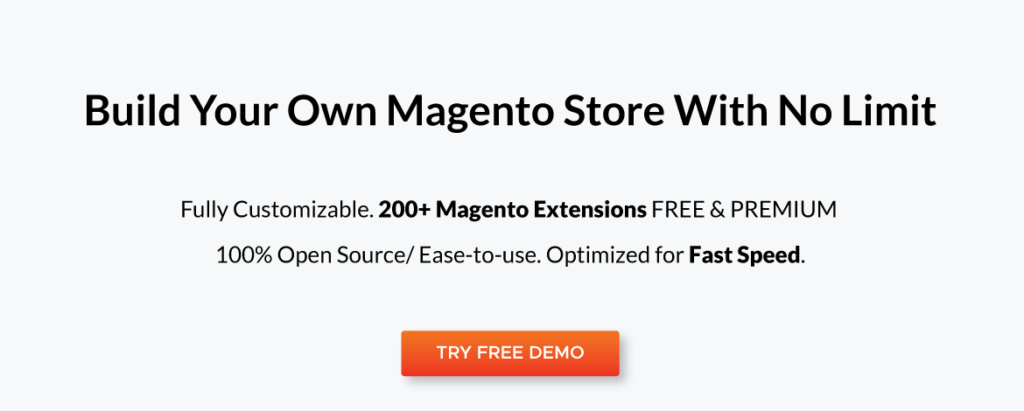





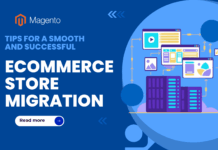

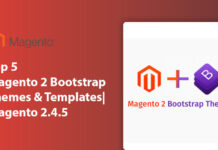



![[SALE OFF] Discount 30% All Premium Extensions On Christmas And New Year 2025 christmas-and-new-year-2025](https://landofcoder.b-cdn.net/wp-content/uploads/2024/12/christmas-and-new-year-2025-1-218x150.png)




